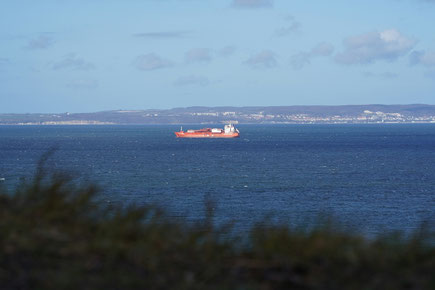
Amidst geopolitical tensions in Ukraine, Israel, and the Iranian-sponsored Red Sea blockade, Qatar stands poised to capitalize on the surging demand for liquefied natural gas (LNG). QatarEnergy's recent signing of four agreements to charter 19 LNG carriers from Asian ship operators underscores the nation's strategic positioning in the global energy landscape. The agreements, announced by Qatar's Energy Minister Saad Al-Kaabi at a ceremony in Doha, signify a significant expansion of Qatar's LNG export capacity. China's CMES Co. Ltd. and Shandong MarineGroup Ltd. will each supply six vessels, while Malaysia's MISC Bhd will provide three. Additionally, a joint venture between Kawasaki Kisen Kaisha Ltd. and Hyundai Glovis Co. will contribute four LNG carriers. With each vessel boasting a capacity of 174,000 cubic meters, Qatar is gearing up to meet the escalating demand for LNG in key markets.
The timing of these agreements couldn't be more opportune for Qatar. The ongoing conflict in Ukraine has disrupted natural gas supplies to Europe, driving up prices and increasing the continent's reliance on LNG imports. Similarly, tensions in Israel have raised concerns about energy security in the region, further amplifying demand for LNG as an alternative fuel source. Moreover, Qatar's strategic location and established infrastructure enable it to navigate the challenges posed by the Iranian-sponsored Red Sea blockade. As maritime routes are disrupted, Qatar's LNG shipments remain largely unaffected.
By bolstering its LNG export capacity, Qatar not only strengthens its position as the world's leading LNG exporter but also enhances its geopolitical influence. As other energy-dependent nations grapple with supply disruptions and price volatility, Qatar emerges as a stable and dependable supplier, capable of meeting the evolving needs of the global energy market. In the midst of Qatar's burgeoning LNG market surge, it is imperative to acknowledge the complex geopolitical dynamics shaping the region. Between June 2017 to January 2021, the Gulf Cooperation Council (GCC) had been marred by internal divisions, with Saudi Arabia, Bahrain, and the UAE severing diplomatic ties with Qatar and imposing a blockade. This rift, rooted in accusations of Qatar's support for regional terrorist groups and its growing ties with Iran, had posed significant economic challenges. Qatar could however eventually resolve the issue with its more powerful Sunni neighbours, while remaining close with the Shia Islamic Republic of Iran.
In conclusion, Qatar's recent agreements to charter LNG carriers underscore its strategic advantage amidst global turmoil. As demand for LNG continues to surge, Qatar's robust energy infrastructure and proactive approach position it as a key player in shaping the future of the global energy landscape. Qatar will continue to capitilize on the crises, playing with all the parties whoever they are.
Interested in getting more information on global energy insights? Please contact us.







